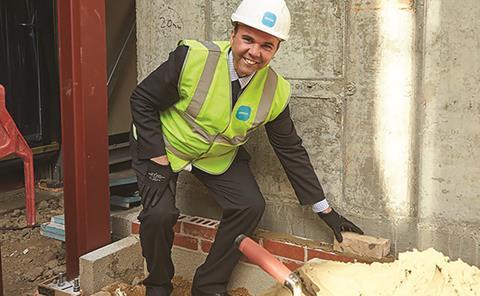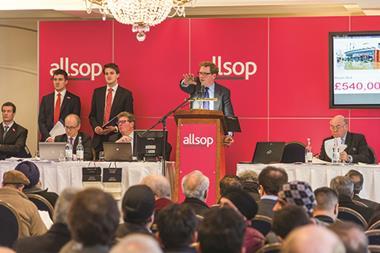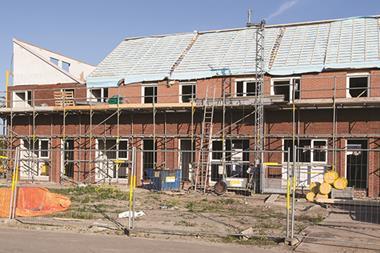The former governor of the Bank of England, Mervyn King, describes the future as one of “radical uncertainty”.

That proposition was made pre-Brexit vote in his excellent book The End of Alchemy, in which he analyses the background to the world financial crisis.
Compared with that global condition, our future relationship with the EU pales into insignificance, even though the property sector took a haircut in the days after the Brexit vote.
As things have settled (prior to a prolonged period of negotiation and so further uncertainty), our attention has turned again to thorny issues surrounding housing shortage - at least in some places - and the planning system.
The Housing and Planning Act has been a long time coming and its effects will only begin to emerge this year.
‘Insecurity of tenure’
For critics, its measures to force council house sales in high-value areas echo views from architect Patrik Schumacher, head of Zaha Hadid Architects, who told the World Architecture Festival in Berlin in November that social housing tenants should move out of city centres to make way for workers.
That story elicited huge criticism of the architect from across the media. But is what he said so different from what the government is about to introduce?
Patrick Schumacher calls for social housing and public space to be scrapped https://t.co/bEA519AC3x via @dezeen
— Sophia Psarra (@SophiaPsarra) November 18, 2016
What about the ‘insecurity of tenure’ clauses in the legislation, aimed at breaking the link between social home occupancy and geographical permanence?
The overarching theme of the act is, of course, the provision of an additional one million homes to the housing stock by 2020, but shuffling people about makes no difference to net numbers.
In principle, each unit sold will be replaced by two new units. It will be interesting to see if this actually happens, but the precedents are not encouraging.
There is a failure of politicians to provide clear leadership
Connecting housing shortages in London and the South East to a presumed failure of the planning system is a much-loved sport inside the ministry responsible for housing (question: is that DCLG, Business or the Treasury? All are throwing money at it).
Whitehall likes to shrug off responsibility for market failure without investigating whether the underlying thesis is valid. Don’t expect any change there this year, despite hundreds of thousands of extant planning permission for homes not started.
Why would anyone build?
Will Gavin Barwell, who seems a pretty bright spark in a gloomy pantheon, get to grips with closing the gap? The gap is partly explained by the fact that permissions can be given for sites not capable of early development, for example because of below-ground works that are the responsibility of a statutory undertaker.
The poor housebuilder will then be accused of profiteering by sitting on the site. If this analysis were correct, why would anyone build anything?
The smear campaign against housebuilders, generally from the left, is balanced by the smears on the planning system, generally from the right, that the housing shortage is the result of malign or indifferent planning officers. It is all nonsense.

In reality, the shortage results from a plethora of factors including industry capacity, failure to train enough skilled operatives, a want of mortgage finance without ridiculous deposit requirements, Nimbyism and above all a failure of politicians to provide clear leadership on what constitutes decent provision of housing for those who will probably never be able to afford to buy.
In these circumstances, it is not surprising that the private rented sector smells blood and offers a proposition (you pay us rent for 25 years but we still own the property) totally at odds with what the individuals responsible for this sort of offer do in their own private lives. They are all owners.
Given the pitiful recent completion figures for housing production under successive governments and London mayoralties, it is disconcerting to see that ‘affordable’ policies are now being transferred to the office sector. The office market has nothing to learn from the politics of the residential world. It is the other way round.
Paul Finch is programme director of the World Architecture Festival





























No comments yet